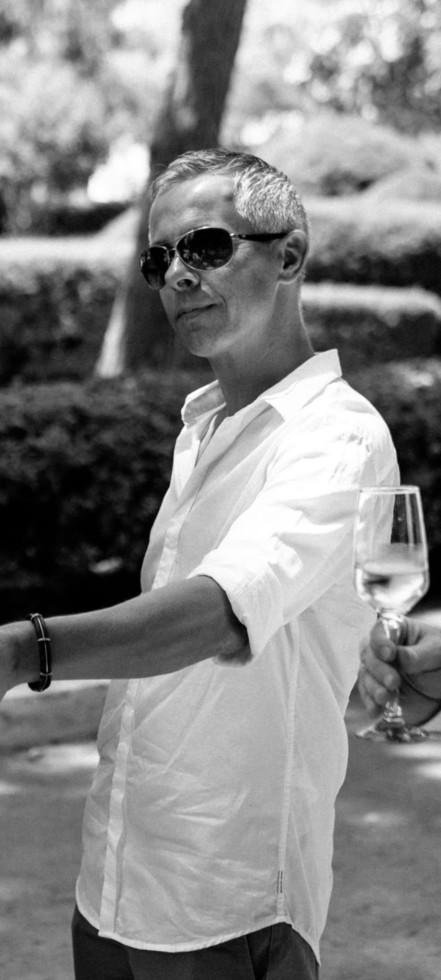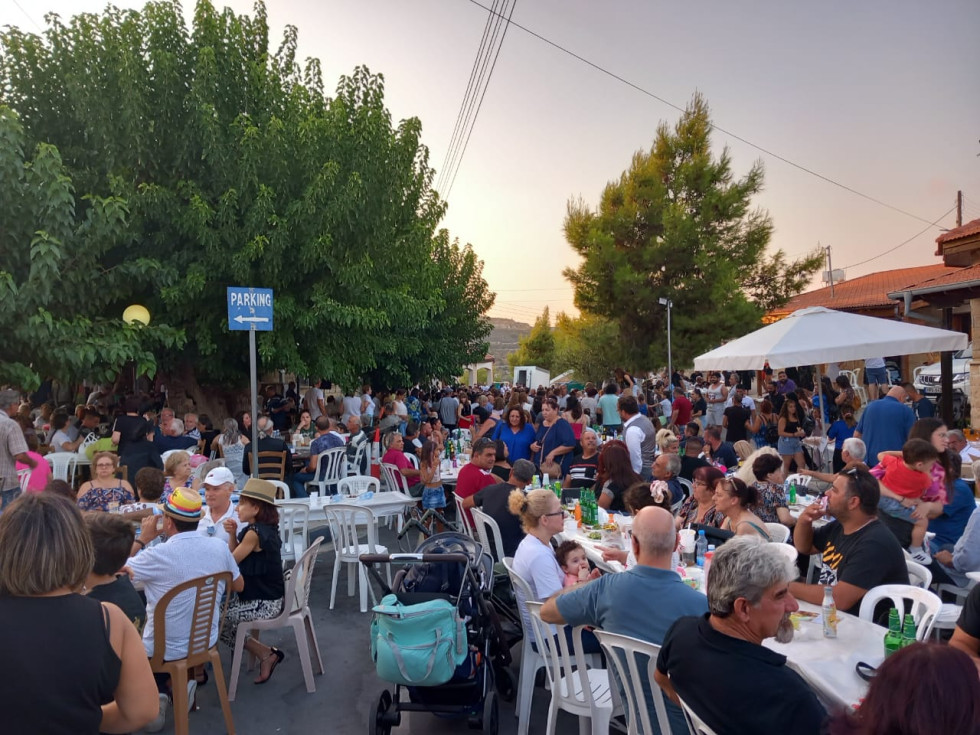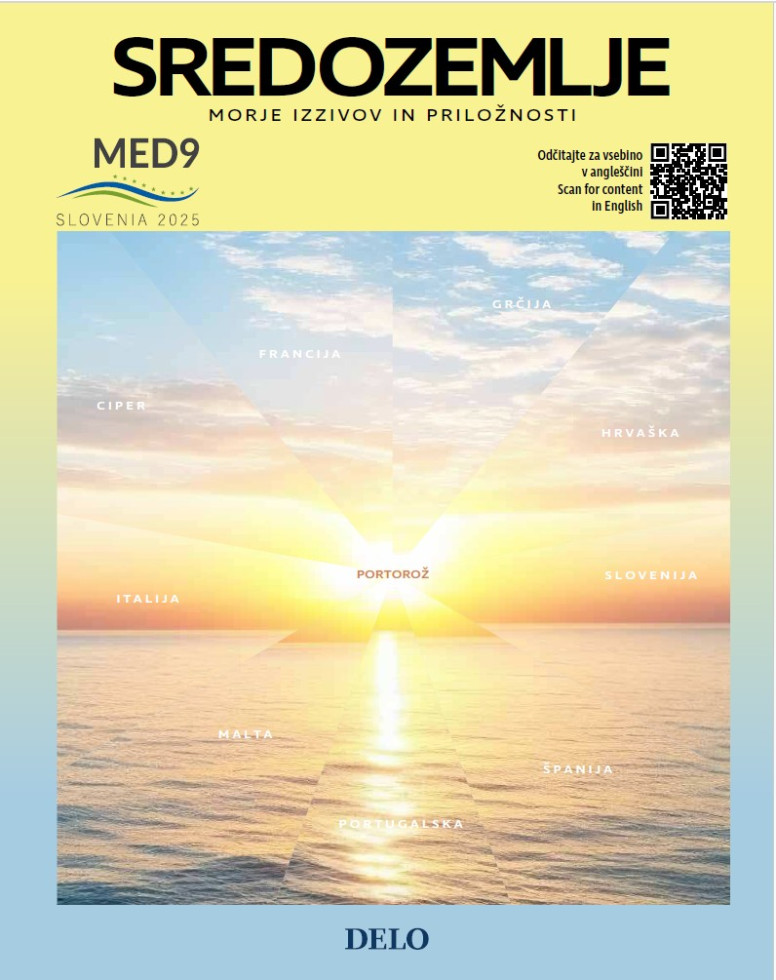Among many business challenges, he found an island of financial industry
"While working in construction industry, I got to know several countries, and in between, I used holidays to visit friends and colleagues from my hometown who lived and worked in Cyprus. Eventually, I decided to try doing business on that island. I aimed to start a company for selling and installing photovoltaics, that is, solar power plants. Unfortunately, I tackled this at the wrong time, as just a little earlier, in 2008, the global financial crisis hit. People were scared, there was no interest in investment, banks were in a crunch, and it was really tough, so this attempt fell through," Drvarič recounts the first bitter lessons at his new destination.
"There is also another complicating factor in Cyprus, there is a company that holds a monopoly in electricity production, with the state owning 60%. This is quite a significant problem because competition has a hard time entering the market, especially now, when solar panel electricity production has greatly expanded. Bureaucrats sent me back and forth; the state was neither prepared nor willing to have more companies in the sector. In the end, it was classic bargaining, competitors offered prices below cost, and the business environment in this sector showed no prospects, so I gave up on the whole thing."
To Switzerland and back
The company, which operates an online trading platform, needed German-speaking employees. Since German is almost like a native language to me, I quickly got the right opportunity.
Of course, this did not deter him from seeking new opportunities in Limassol (the second-largest city in the Greek part of Cyprus after the capital Nicosia, with 175,000 inhabitants versus 280,000). "In one of the companies I worked for, I also met my wife Stella. But at that time, the labour market conditions were not very favourable, so after two and a half years, I was forced to go to Switzerland. First, I worked in a French restaurant as a kitchen assistant, then I installed kitchens. After two years, my wife gave me an ultimatum to return to Cyprus. Meanwhile, economic conditions had improved and it was easier to find suitable employment. Since 2013, I have been living continuously in Cyprus. I first worked in a hotel while also looking for new opportunities in other sectors. I found one in an online casino, where I worked for a good four years, and Stella joined me there and still works there. Meanwhile, I moved into the financial sector, first into Forex company that has an online platform for trading stocks, securities, commodities and so on. They needed German-speaking employees, and for me, German is almost like a native language, so I quickly got the right opportunity. Later, I changed companies but stayed in the sector. I am satisfied here; the work is interesting and the salary is good,” Vladimir sums up the lively developments in just a decade and a half.
The Styrian has settled in Cyprus, the third largest and third most densely populated island in the Mediterranean after Sicily and Sardinia. "My wife and I bought a dilapidated house outside Limassol at a good price. The climate in our place is milder than by the sea and we have more peace than in the city. After renovation, we have been living there for almost two years now. It is a village with about 400 inhabitants; Limassol or even the beach is a half-hour drive,” says Drvarič.
Rental prices have skyrocketed, doubling in the last ten years.
He does not embrace Mediterranean leisure, as it is not really suited to a Slovenian. "My usual working day is nine hours long, with one hour for lunch. In our sector, where rules on working hours are often more relaxed, you can work according to your own schedule, but you must deliver results. Overtime is, of course, unpaid, but in addition to the base salary, you can earn quite a bit from commissions," describes his job the 45-year-old Vladimir, who also spends his free time actively.
Barbecue is the best!
"My wife and I love attending various traditional festivals in small towns and villages, where we get to taste local delicacies. The last one we went to was a peach festival, we’ve also been to a cherry festival, and soon there will be an apple festival, followed by the ‘palouze’ festival – a traditional Cypriot dessert; it's a grape pudding or jelly. Alongside the characteristic local produce and dishes, these fun events with vibrant programmes and market stalls always feature barbecue, with a rich selection of meat from gyros and souvlaki to lamb. There’s also plenty of vegetables and the well-known cheese halloumi. The atmosphere at these events is very relaxed and social,” Vladimir describes the Cypriot festivities.
We didn’t even need to ask about his favourite food. "I'm a meat lover, while my wife adores seafood. Meze are very popular in taverns – they serve ten or fifteen different small dishes, and you enjoy them slowly in good company. Here, people always find a reason to fire up the grill, usually starting off with a taste of local grape brandy. My father-in-law, who is from the northern, Turkish part of Cyprus, is a master at making it. During the war in the mid-1970s, he fought but eventually had to flee his home. He left behind all his possessions, including two houses, and had to start a new life from scratch, building a family here with three children. I haven’t visited the Turkish part of the island, mostly out of respect for my father-in-law. But friends have told me that Turkish Cypriots, in terms of mentality, are hardly any different from Greek Cypriots. The standard of living is lower there, and everything is cheaper."
Multiculturalism drives up prices
Prices in shops are similar to those in Slovenia. In typical taverns, especially those outside tourist hotspots, it’s generally cheaper than in Slovenian restaurants.
The southern part of the island has seen a boom in all areas over the past five decades, and multiculturalism is felt everywhere."My wife and I have a wide circle of friends and acquaintances, including local Greek Cypriots, Greeks who came to the island for work, as well as Germans, Russians, Brits and Latvians – it’s a very diverse group. Russians are the largest community here, especially in Limassol, which has about 170,000 residents, of which roughly 50,000 are Russian. On top of that, there are many Russian tourists, so the Russian language can be heard everywhere, not just in the tourism sector," Drvarič points out.
A strong economy – driven by the banking sector, foreign investments, maritime trade, oil and gas fields, construction, tourism and agriculture – provides a high standard of living for many. But how does that reflect in everyday life? "Prices in shops are similar to those in Slovenia. In typical taverns, especially those outside tourist hotspots, it’s generally cheaper than in Slovenian restaurants. Limassol has a reputation as an expensive city – on average, prices are comparable to those in Ljubljana, for example. Rental prices have skyrocketed, doubling in the last ten years. There are many immigrants, especially Russians, and the financial sector – where salaries are above average – is huge. All of this has driven up costs. In Limassol, renting a two-bedroom apartment costs around a thousand euros per month. Since the big financial crisis, the market has stabilised, and the construction sector has boomed. The real estate market is very active – there's construction everywhere. My friends and I often wonder who all these residential buildings are being built for, as the population isn’t that large. Due to high living costs, most young locals stay at home – if there is enough space, multiple families live together in one house," says Drvarič.
Godfather: the legendary Janez Drvarič
It’s only when the conversation turns to leisure activities, recreation and sports that Vladimir reveals that the famous Slovenian basketball expert Janez Drvarič is not only his uncle on his father’s side but also his godfather. While Vladimir's favourite sport is football, he did regret this year that the Slovenian national basketball team didn’t play in Cyprus during the European Championship – Cyprus was one of the host countries for the group stage. Like many Cypriots, he also plays football recreationally.
"Recreational sports here are organised a bit differently than back home. For example, there are social media groups where you can sign up and play virtually every day of the week, often with complete strangers. Of course, we cover the cost of the pitch rental ourselves – there are no free options. Football recreation is big business here. Games are usually played on artificial turf, five-a-side, seven-a-side or nine-a-side. My regular football group usually meets on Tuesdays, and we pay EUR 144 for one hour of pitch time. I’ve even thought about buying or renting land in the future to build two or three pitches and rent them out. The demand is really high and the pitches are always booked. Cypriots may not be top-class footballers, but they absolutely love the game," explains Drvarič. After a comment about local club Pafos qualifying for the Champions League for the first time in history, he adds: "When Bayern Munich played there, the cheapest ticket was EUR 250 – which I find excessive. Also, because of the stadium’s limited capacity, you usually have to become a club member before you can even buy a ticket. But the domestic league games here just don’t appeal to me,” says the football enthusiast.
Careful with water, careless with waste
So how do people on the island manage their water supply, considering it's not unlimited? "It’s true – we use water sparingly because it’s not abundant. The cities are supplied from reservoirs and tanks, but climate change is a problem. For at least five years now, the winters have been quite dry, without much rainfall. They’re predicting another dry season ahead, so authorities are urging people to conserve water. Recently, they even banned car washing. A few years ago, we had a short period of water rationing, when water was available only for two two-hour windows a day. Of course, such measures are hardest for hotels, restaurants and other businesses in tourism – they simply can’t afford to run out of water because guests will go elsewhere,” says Drvarič on this pressing issue. He also mentions poor waste management: "Waste sorting is mostly a foreign concept here, and recycling is problematic too." As for Cypriot traffic culture, he adds critically: ("God help us! They don’t need turn signals, as they don’t use them at all. Driving in roundabouts is an adventure of its own, not to mention how they cut corners.")
He sees better practices in these areas in Slovenia, which he and his wife Stella visit every year, while his parents regularly travel in the opposite direction to see them. "Stella is also an avid runner – this year she completed the half-marathon in Bovec, and next year she plans to run in the Ljubljana Marathon. As for me, I’ve settled in Cyprus and don’t plan on returning to Slovenia. We have a well-organised life here, and when a child comes along, it’ll be even more joyful,” Vladimir Drvarič concludes.





